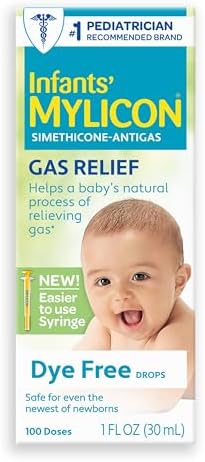If you’ve ever held your newborn close, trying everything to soothe their nonstop crying—and nothing seems to work—you’re not alone. Colic is one of the most challenging and confusing phases for new parents. The endless crying can leave you feeling helpless, exhausted, and full of questions.
Is my baby in pain? Am I doing something wrong? When will this end?
The truth is, colic is common, temporary, and not a reflection of your parenting. In this post, we’ll walk together through gentle, practical ways to comfort your baby, support their developing body, and give yourself the reassurance you deserve. Let’s explore what truly helps with newborn colic—and how you can get through this, one day at a time.
What is colic, and how do I know if my baby has it?
Colic is one of the most common concerns for new parents, yet it’s also one of the most misunderstood. If your baby cries intensely for no clear reason, often in the evenings, and nothing seems to soothe them, it might be colic.
Key signs of colic include:
- Crying for more than 3 hours a day, at least 3 days a week, for 3 weeks or more
- Clenching fists, arching the back, or pulling up the legs
- Passing gas more frequently
- Appearing red-faced and inconsolable
Colic typically starts around 2 to 3 weeks of age and peaks at 6 to 8 weeks, often resolving by 3 to 4 months.
Why do babies get colic?
Unfortunately, there’s no single known cause of colic, which makes it especially frustrating for parents. But several theories suggest what might trigger this excessive crying.
Possible causes of colic:
- Digestive discomfort or immature gastrointestinal system
- Gas or trapped air in the belly
- Sensitivity to stimulation (light, noise, or touch)
- Food sensitivities (such as dairy or caffeine through breastmilk)
- Emotional development—babies may be learning to self-soothe
It’s important to know: colic is not your fault, and it doesn’t mean anything is wrong with your baby—or with your parenting.
What are some soothing techniques that can help?
The key to managing colic is creating a calming environment and trying different soothing methods until you find what works best for your baby.
5 S’s method (developed by Dr. Harvey Karp):
- Swaddling – Provides a womb-like sense of security
- Side or stomach position (while held) – Calms the baby; always put baby to sleep on their back
- Shushing – White noise or soft repetitive sounds mimic the womb
- Swinging – Gentle motion soothes the nervous system
- Sucking – Pacifiers or feeding can help regulate stress
Other calming strategies:
- Skin-to-skin contact
- Warm baths
- Baby massage (especially around the tummy area in a clockwise direction)
Can feeding habits affect colic?
Yes, feeding can play a significant role in managing colic. Sometimes colic is related to how the baby feeds, how much air they swallow, or even sensitivities to milk proteins.
Tips for breastfed babies:
- Try feeding from one breast per session to provide more hindmilk (rich in fat and calories)
- Watch your diet—some babies are sensitive to dairy, caffeine, or cruciferous vegetables
- Consult a lactation consultant if latch issues are suspected
Tips for formula-fed babies:
- Use anti-colic bottles to reduce air intake
- Ask your pediatrician about trying a hydrolyzed formula if cow’s milk allergy is suspected
- Feed upright and burp your baby often during and after feeding
When should I try changing the baby’s formula or my diet?
While most cases of colic are not caused by food allergies, about 2–3% of infants may react to cow’s milk protein. If you notice additional symptoms—like rashes, mucus in stool, or frequent vomiting—it might be time to investigate further.
Consider changes if your baby shows:
- Severe gassiness, bloating, or diarrhea
- Excessive spit-up or reflux
- Eczema or skin reactions
Before switching formulas or cutting out foods, talk to your pediatrician or a registered dietitian. Self-diagnosing can lead to unnecessary restrictions or nutrient imbalances.
Does holding the baby too much cause colic?
Absolutely not. In fact, the opposite may be true. Babies who are held frequently tend to cry less, not more. They feel secure and connected when they are in close physical contact.
Tips:
- Use a baby wrap or carrier for hands-free soothing
- Practice skin-to-skin cuddling during and after feedings
- Hold your baby upright after feeding to aid digestion
Don’t worry about “spoiling” your baby—newborns need comfort and reassurance to adjust to life outside the womb.
Can gripe water or gas drops help?
Many parents turn to over-the-counter remedies like gripe water or simethicone gas drops in hopes of calming colic. While some families find relief, the research is mixed.
Gripe water:
- Herbal blend, often includes ginger, fennel, or chamomile
- May help some babies, but effectiveness is not strongly supported by clinical trials
- Choose alcohol-free, sugar-free versions and consult your doctor before use
Gas drops (simethicone):
- Break up gas bubbles in the stomach
- Generally considered safe
- Mixed results on whether they reduce crying
Always check with your pediatrician before giving any supplement to your newborn.
Is colic linked to long-term problems?
Fortunately, colic is temporary and does not cause lasting harm. Babies with colic typically grow up healthy and well-adjusted.
Colic is not associated with:
- Developmental delays
- Behavioral problems later in childhood
- Cognitive or emotional deficits
However, it can impact the mental health of parents, leading to stress, anxiety, and even postpartum depression. If you’re feeling overwhelmed, it’s essential to seek support.
How can I take care of myself during this difficult phase?
Caring for a colicky baby can be incredibly draining. It’s okay to feel frustrated, exhausted, or even helpless. You’re not alone—and your feelings are valid.
Ways to cope:
- Take turns soothing the baby with your partner or a trusted friend
- Step away for a few minutes if you feel overwhelmed (make sure the baby is safe)
- Connect with other parents or join a support group
- Don’t hesitate to reach out to your healthcare provider for emotional support
Your well-being matters, and taking care of yourself helps you take better care of your baby.
When should I seek medical help?
While colic is common, it’s always wise to consult your pediatrician to rule out other medical issues, especially if your baby shows unusual symptoms.
Call your doctor if your baby:
- Is not gaining weight
- Has a high fever or appears ill
- Cries differently than usual (weak, high-pitched, or piercing)
- Vomits forcefully or has bloody/mucusy stools
- Seems excessively sleepy or lethargic
Trust your instincts—if something doesn’t feel right, it’s always worth checking.
Conclusion
Colic can be one of the toughest parts of early parenthood, but it doesn’t last forever. By understanding your baby’s needs, trying gentle soothing techniques, adjusting feeding if needed, and taking care of your own well-being, you can get through this stage with love and confidence.
Remember, your baby doesn’t need perfection—they just need you. Trust yourself, be kind to yourself, and reach out when you need support. You’re doing an amazing job.
FAQs
Colic typically starts around 2–3 weeks and improves by 3–4 months of age.
If your baby shows signs beyond typical newborn colic—like fever, weight loss, or unusual stools—talk to your pediatrician promptly.
Yes. Gentle massage, swaddling, white noise, and probiotics are commonly used natural ways to ease newborn colic symptoms.
Not necessarily. Breastfeeding can continue during newborn colic, though adjusting techniques or maternal diet may help.
Newborn colic usually involves intense crying for more than 3 hours a day, at least 3 days a week, for over 3 weeks.
Newborn colic may be linked to gas, an immature digestive system, or overstimulation, even in otherwise healthy babies.
References
- American Academy of Pediatrics. (2022). Colic in Babies
- Mayo Clinic. (2023). Colic
- National Institutes of Health. (2021). Infantile Colic
- Harvard Health Publishing. (2022). Managing Colic
- La Leche League International. (2023). Soothing a Crying Baby
I’m Cris Coelho, and motherhood has transformed my life!
As a speech therapist and early childhood educator, I’ve always been passionate about child development. But it was becoming a mother that truly opened my eyes to the real challenges and joys of this journey.
Here at Materníssima, I share everything I’ve learned — blending professional knowledge, real-life experience, and a heartfelt touch.
You’re very welcome here! 💕






